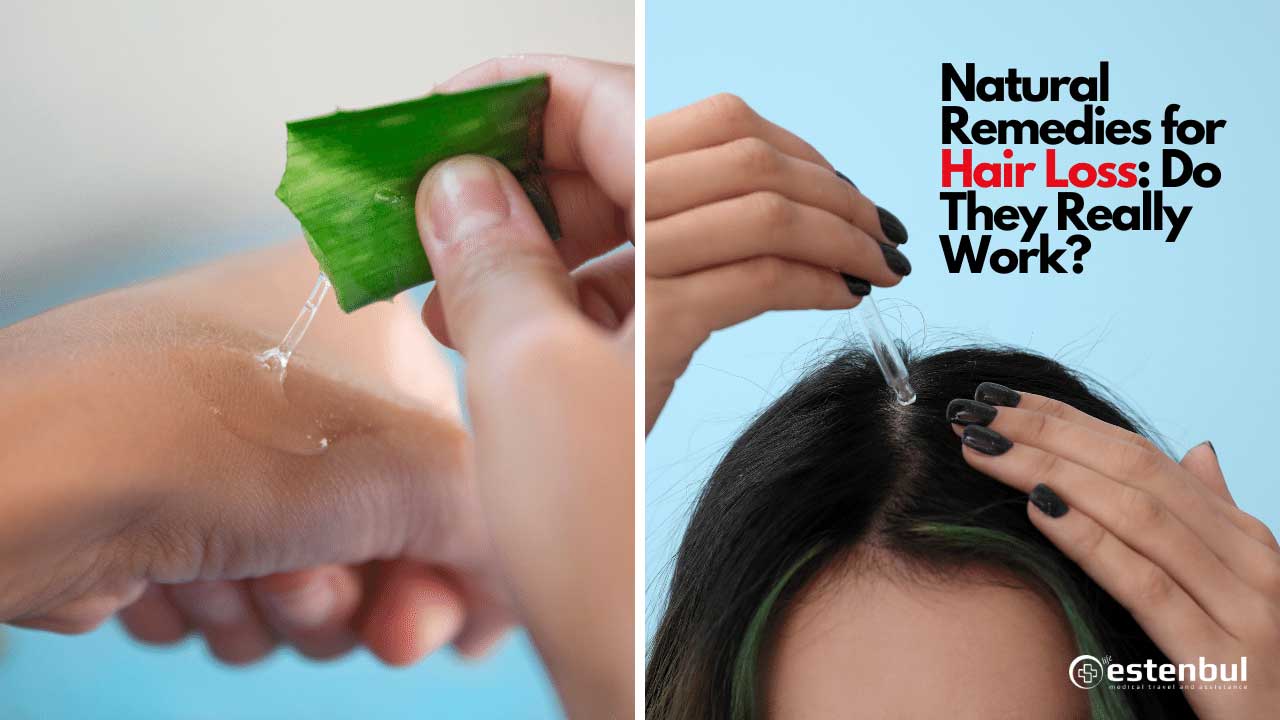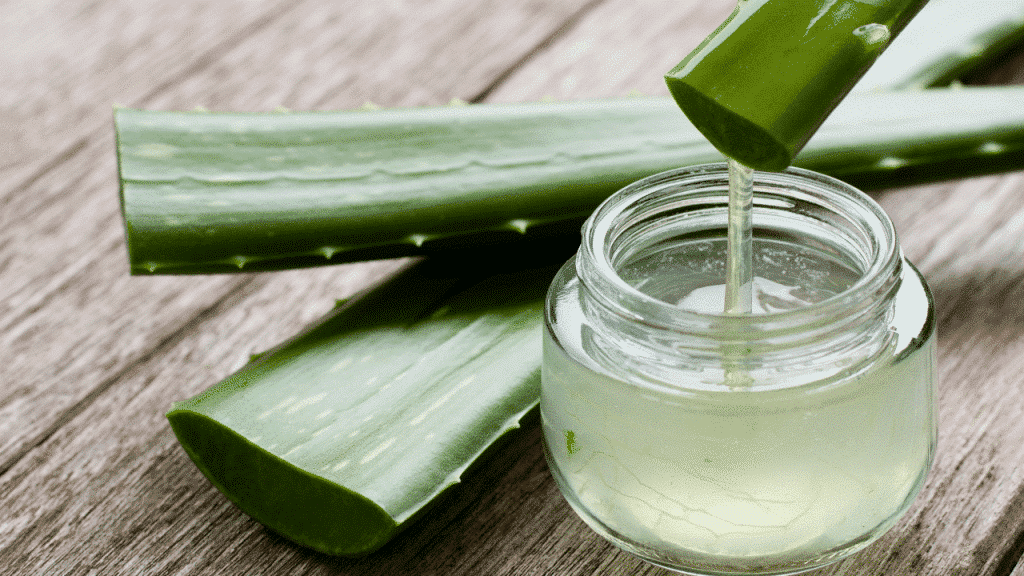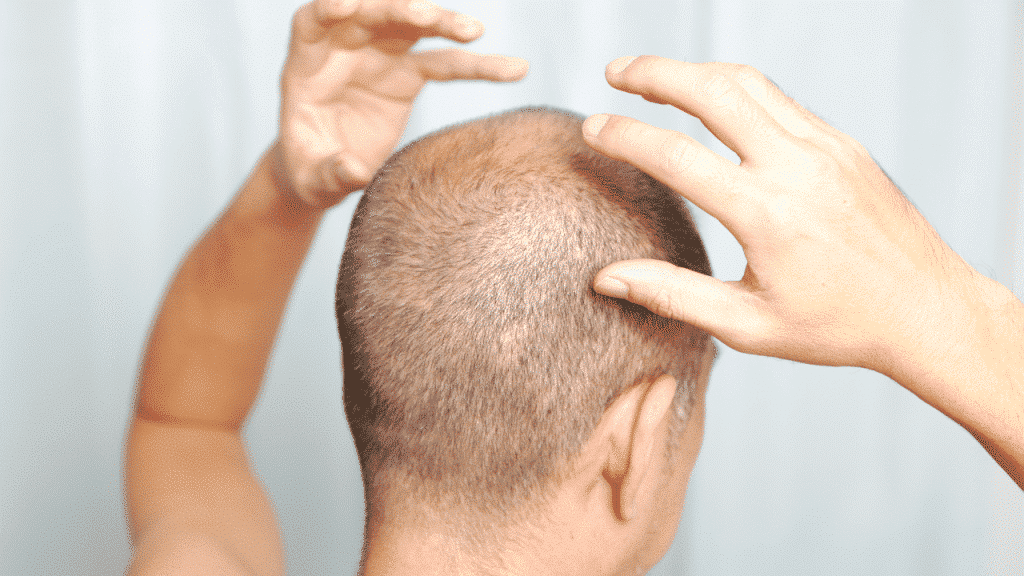
Articles
Natural Remedies for Hair Loss: Do They Really Work?

Hair loss is a common problem that affects both men and women. It can be caused by various factors such as genetics, hormonal changes, medications, and stress. While there are many medical treatments available for hair loss, some people prefer to use natural remedies as an alternative. But the question remains, do these natural remedies really work? In this article, we will explore some of the most popular natural remedies for hair loss and their effectiveness.
Natural Remedies for Hair Loss: Do They Really Work?
Onion Juice
Onion juice is a popular natural remedy for hair loss. It is rich in sulfur, which stimulates the production of collagen and promotes hair growth. To use onion juice, simply blend a few onions and strain the juice. Apply the juice to your scalp and leave it on for 15-30 minutes before washing it off with a mild shampoo. While onion juice has been shown to improve hair growth, it can also cause scalp irritation and a strong odor.

Coconut Oil
Coconut oil is another popular natural remedy for hair loss. It is rich in fatty acids and antioxidants, which nourish the scalp and promote hair growth. To use coconut oil, warm up a few tablespoons of oil and massage it into your scalp. Leave it on for a few hours or overnight before washing it off with a mild shampoo. While coconut oil is generally safe to use, it can be heavy and greasy, especially for those with fine hair.

Aloe Vera
Aloe vera is a natural plant that has been used for centuries to treat various skin and hair conditions. It is rich in vitamins and minerals that promote hair growth and reduce inflammation. To use aloe vera, simply extract the gel from the plant and apply it to your scalp. Leave it on for 30 minutes before washing it off with a mild shampoo. While aloe vera is generally safe to use, it can cause scalp irritation in some people.

Rosemary Oil
Rosemary oil is a popular essential oil that has been shown to promote hair growth. It contains antioxidants that stimulate blood flow to the scalp and improve hair thickness. To use rosemary oil, mix a few drops of oil with a carrier oil such as coconut oil and massage it into your scalp. Leave it on for a few hours before washing it off with a mild shampoo. While rosemary oil is generally safe to use, it can cause scalp irritation in some people.

Green Tea
Green tea is a popular beverage that is rich in antioxidants and polyphenols. It has been shown to promote hair growth and reduce hair loss by inhibiting the activity of DHT, a hormone that contributes to hair loss. To use green tea, steep a few tea bags in hot water and let it cool down. Apply the cooled tea to your scalp and leave it on for 30 minutes before washing it off with a mild shampoo. While green tea is generally safe to use, it can cause scalp irritation in some people.

Saw Palmetto
Saw palmetto is a natural herb that has been shown to block the activity of DHT, a hormone that contributes to hair loss. It is commonly used as a supplement to promote hair growth and reduce hair loss. While saw palmetto is generally safe to use, it can cause stomach upset and other side effects in some people.

Scalp Massage
Scalp massage is a simple yet effective natural remedy for hair loss. It improves blood flow to the scalp and promotes hair growth. To perform a scalp massage, use your fingertips to massage your scalp in circular motions for a few minutes every day. You can also use a scalp massager to help improve blood flow and stimulate hair growth.

Diet and Nutrition
Your diet and nutrition can also play a significant role in hair growth and hair loss. Eating a balanced diet that includes protein, vitamins, and minerals can help promote healthy hair growth. Foods that are rich in biotin, vitamin D, iron, and zinc are especially important for healthy hair. Some good sources of these nutrients include eggs, nuts, leafy greens, and whole grains.

Stress Management
Stress can also contribute to hair loss. Finding ways to manage stress, such as exercise, meditation, and relaxation techniques, can help promote healthy hair growth. It’s important to find what works best for you and make it a part of your daily routine.

FAQ
Conclusion
Natural remedies for hair loss can be an effective and safe alternative to medical treatments. However, it’s important to be aware of any potential side effects and to test a small area of your scalp before using a new remedy. It’s also important to remember that natural remedies may take time to show results, and they should not be used as a replacement for medical treatments. By incorporating natural remedies, a healthy diet, and stress management techniques into your routine, you can help promote healthy hair growth and reduce hair loss.

